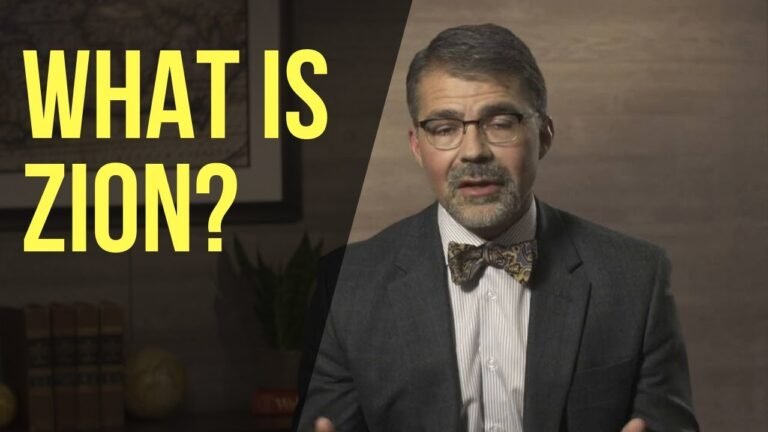Understanding the Catholic Passover: Traditions and Significance
As the world prepares for the sacred observance of Passover, the Catholic community embraces its unique connection to this ancient tradition. Often referred to as the Catholic Passover, this celebration intertwines the rich tapestry of Jewish heritage with the teachings of Christianity, highlighting themes of liberation, renewal, and faith. This article explores the significance of Catholic Passover, delving into its historical roots, cultural implications, and the profound spiritual lessons it offers to believers today. Join us as we uncover the beauty of this intertwined legacy and its relevance in contemporary worship.
What does Catholic Passover signify for believers?
Catholic Passover signifies the celebration of the Last Supper, Jesus’ sacrifice, and the establishment of the Eucharist, emphasizing redemption and spiritual renewal for believers.
Are the Last Supper and Passover identical?
The Last Supper and Passover are closely intertwined, with traditional views suggesting that Jesus’ final meal was indeed a Passover Seder. This connection is supported by the accounts in three of the four canonical Gospels—Matthew, Mark, and Luke—which indicate that the Last Supper took place after the Jewish holiday had commenced. This timing aligns with the observance of Passover, a significant festival commemorating the Exodus from Egypt.
During Passover, families gather to share a ceremonial meal that includes specific rituals and symbolic foods. The inclusion of the Passover sacrifice during the Last Supper implies that Jesus and his disciples participated in these traditional practices, further reinforcing the notion that they were observing this important Jewish holiday. The elements of the meal, such as unleavened bread and wine, hold profound significance in both Jewish tradition and Christian symbolism.
Ultimately, the shared elements of ritual and meaning between the Last Supper and Passover highlight the deep connections between these two pivotal events in religious history. Understanding this relationship enriches our appreciation of the Last Supper’s significance within both the Jewish and Christian faiths, as it embodies themes of liberation, remembrance, and covenant.
What is the significance of Passover for Christians?
For Christians, Passover symbolizes a profound connection to their faith, representing deliverance and redemption through Jesus Christ. This pivotal event in the Jewish tradition foreshadows the ultimate sacrifice Jesus made, highlighting God’s unwavering support for humanity. As a member of the Jewish community, Jesus celebrated the Seder meal with His disciples, intertwining the significance of this ancient ritual with His mission of salvation, reinforcing the belief that God is always for us, guiding believers towards hope and liberation.
Should Catholics participate in a Seder meal?
Participating in a Seder meal can be a meaningful experience for Catholics, fostering a deeper understanding of the Jewish roots of their faith. This tradition, rich in symbolism and history, provides an opportunity to engage with the narratives of liberation and community, themes that resonate deeply within the Christian tradition as well. By joining a Seder meal, Catholics can honor the Jewish heritage that is integral to their own spiritual journey.
To ensure an authentic experience, it is essential for Catholics to approach the Seder with respect and openness. Consulting with knowledgeable individuals, such as rabbis or Jewish converts to Catholicism, can enrich the experience and ensure that the customs and rituals are observed correctly. This collaboration not only enhances understanding but also strengthens interfaith relationships, promoting dialogue and mutual respect between the two communities.
Ultimately, the invitation to participate in a Seder meal embodies a spirit of fellowship and learning. By embracing this opportunity, Catholics can deepen their appreciation for the shared history and values that bind them to their Jewish friends. This respectful engagement serves as a bridge between faiths, highlighting the importance of unity and understanding in a diverse world.
Unveiling the Rich History of Catholic Passover
The Catholic Passover, often intertwined with the celebration of Easter, reveals a profound historical tapestry that connects the ancient Jewish traditions with the foundational narratives of Christianity. This observance reflects the Last Supper, where Jesus and his disciples shared a Passover meal, transforming the symbolic act of liberation into a celebration of resurrection and hope. As churches around the world commemorate this sacred time, they invite the faithful to explore the depths of their heritage, embracing themes of sacrifice, redemption, and the promise of new life. Through rituals and reflections, the Catholic Passover serves as a poignant reminder of the enduring power of faith and the shared roots that unite diverse spiritual communities across the globe.
Exploring Sacred Traditions and Their Meaning
Across cultures and centuries, sacred traditions serve as a rich tapestry woven from the beliefs and values of communities, offering profound insights into the human experience. These rituals, whether passed down through generations or adapted over time, connect individuals to their heritage and to one another, fostering a sense of belonging and purpose. By exploring these practices—be it through prayer, dance, or communal feasts—we uncover not only the spiritual significance behind them but also the universal themes of love, gratitude, and resilience that resonate across diverse societies. Engaging with sacred traditions invites us to reflect on our own beliefs and encourages a deeper understanding of the world’s myriad cultures, enriching our journey through life.
A Journey Through Faith: The Catholic Passover Experience
The Catholic Passover experience invites believers to embark on a profound journey of faith, reflecting on the rich tapestry of tradition and spirituality that binds them to their heritage. As families gather around the table, the Seder meal becomes a sacred moment of remembrance, where the symbolic foods evoke the story of liberation and God’s unwavering promise. Each element, from the bitter herbs to the sweet charoset, serves as a reminder of both suffering and hope, bridging the past with the present. Through prayer, song, and shared stories, participants deepen their connection to one another and to God, embracing the transformative power of faith that guides them toward a brighter future.
The Catholic Passover invites us to reflect on the profound connections between faith, tradition, and community. As believers commemorate the Last Supper and the transformative power of sacrifice and redemption, they find a deeper understanding of their own spiritual journeys. By embracing these sacred rituals, Catholics not only honor their heritage but also foster a sense of unity and purpose that resonates through generations. This celebration serves as a reminder that, just as the Passover marked a pivotal moment in history, so too can our faith inspire renewal and hope in today’s world.







